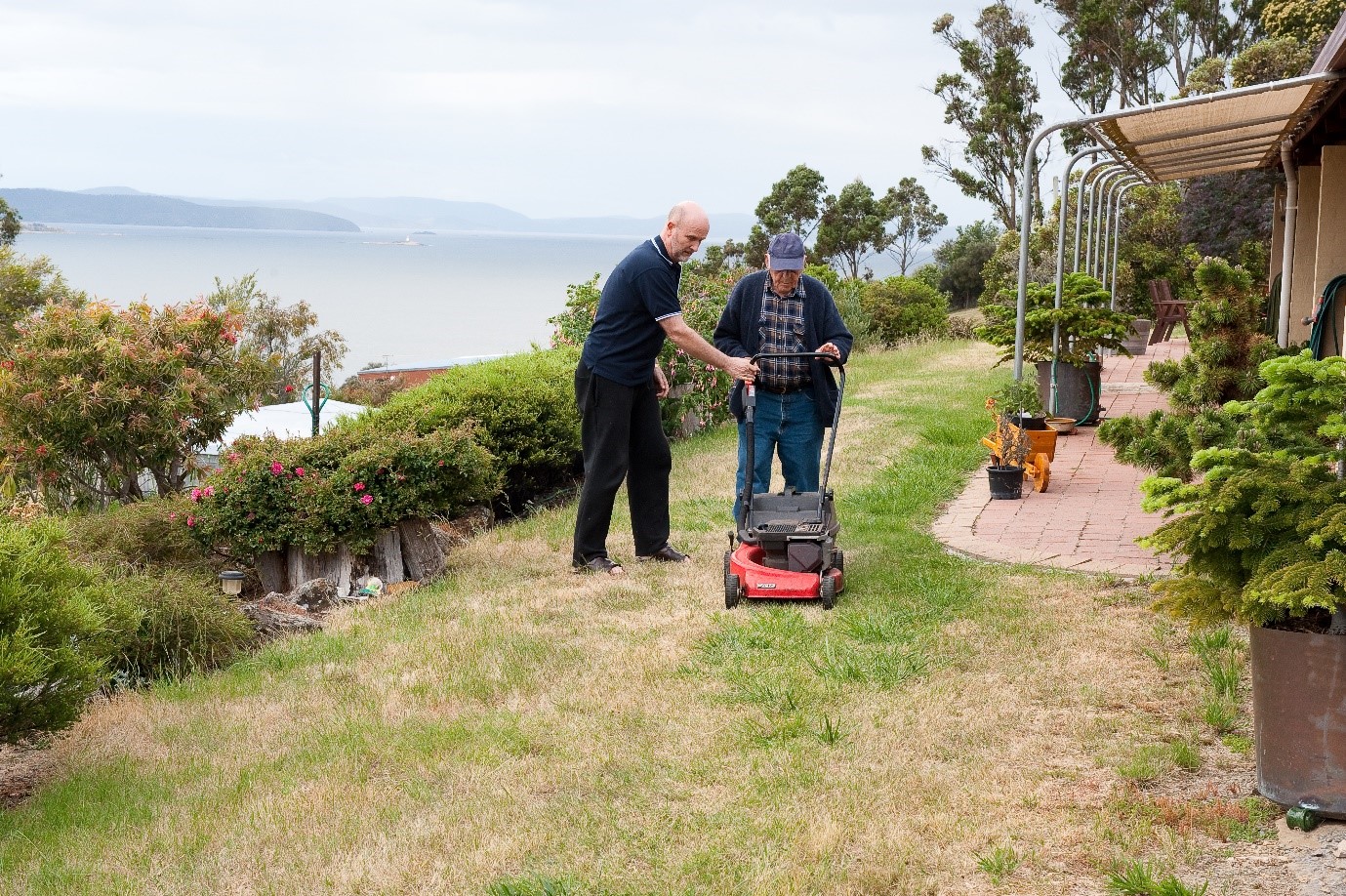Contact: Kate-Ellen Elliott
Email: Work4Dementia@utas.edu.au
Work4Dementia: Development of an evidence-based intervention to build capacity and resilience for the Australian dementia care workforce
The aged and dementia care workforce is one of the fastest growing occupational groups, but it is not growing fast enough. The number of care workers in Australia must increase to meet growing complex dementia care needs. There are problems with recruiting and retaining workers in the aged care sector and this has flow on effects for the quality of care for older adults, including people living with dementia.
Our previous research has shown that social ties with clients provide meaning in care work and the relationships care workers have with their clients are a motivating factor to participate in the job. Those who feel committed to clients and socially connected adjust to the challenges of their roles and often remain working in the sector. However, despite being with people all day, many aged care workers feel isolated and desire collegial support. Feeling unable to provide quality care or dissatisfied in their roles may be a reason for workers to quit their jobs.
There are gaps in continuing professional education, training and workplace supports in this sector. Strategies are required to attract, support and retain care staff, but we still do not know which programs best develop worker capacity and resilience. Capacity building interventions in dementia care have focused on education of the workforce without taking into account the stress and coping factors of high job demands.
Our research will help to identify which strategies best reduce job stress, enhance work engagement, reduce turnover and improve quality care. We will develop an innovative intervention informed by this research and trial it in several aged care organisations.
Objectives:
The overall objective of this research is to improve the capacity and resilience of the dementia care workforce. More specifically, the aims of this research are to:
- Develop an innovative evidence-based capacity building intervention (Work4Dementia) ready for translation into practice
- Test acceptability, feasibility and efficacy of this intervention to reduce job stress, enhance work engagement, reduce turnover and improve quality of care
Research Team:
- Dr Kate-Ellen Elliott
- Dr Laura Tierney
- Dr Kathleen Doherty
- Dr Michael Quinn (School of Medicine (Psychology), College of Health and Medicine, University of Tasmania)
- Prof Jennifer Scott (School of Medicine (Psychology), College of Health and Medicine, University of Tasmania)
Funding:
- 2016-2022 National Health and Medical Research Council- Australian Research Council Dementia Research Development Fellowship
- 2014-2015 Wicking Dementia Research and Education Centre Early Career Seed Funding Award
- 2014-2015 University of Tasmania’s Research Enhancement Grants Scheme
- 2009-2012 TIME for Dementia PhD Scholarship (Tasmanian and Victorian Dementia Study Centre), Wicking Dementia Research and Education Centre, School of Psychology, University of Tasmania
Outputs:
Elliott K-EJ, Scott JL, Stirling C, Martin AJ, & Robinson A. (2012). Building capacity and resilience in the dementia care workforce: a systematic review of interventions targeting worker and organizational outcomes. International Psychogeriatrics, 24(6), 882-894. DOI: 10.1017/S1041610211002651
Elliott K-EJ, Stirling CM, Martin AJ, Robinson AL, & Scott JL. (2013). Perspectives of the community-based dementia care workforce: 'occupational communion' a key finding from the Work 4 Dementia Project, International Psychogeriatrics, 25(5), 765-774. DOI: 10.1017/S1041610212002323.
Elliott, K-EJ. (2015). A measure of occupational communion to inform the design and evaluation of dementia care workforce development interventions. Presented at the International Psychogeriatric Association International Congress, Berlin, Germany, 13- 16 October 2015.
Elliott K-EJ, Stirling CM, Martin A, Robinson AL, & Scott JL. (2016). We are not all coping: a cross-sectional investigation of resilience in the dementia care workforce, Health Expectations, 19(6), 1251-1264. DOI: 10.1111/hex.12419.
Elliott K-EJ. (2016). Development of the dementia care workforce. Presented at the 2nd Dementia Strategy Summit, Sydney, Australia, 29 October 2016.
Elliott, K-EJ, Sanderson K, Martin A, Robinson A, & Scott JL. (2016). Stress and coping of Australian community-based aged and dementia care employees. Presented at the 4th Wellbeing at Work Conference, Amsterdam, Netherlands, 31 May 2016.
Elliott K-EJ, Stirling CM, Martin Angela, Robinson A, & Scott JL. (2017). Co-production for sustainability: Seeking the perspectives of informal dementia carers' on capacity building for community services. Journal of Community Psychology, 45(2) 267–282, DOI: 10.1002/jcop.21847.
Elliott KE.J., Scott J.L., Stirling C.M., Martin A.J. (2018) Developing Resilience in the Aged and Dementia Care Workforce. In: Resnick B., Gwyther L., Roberto K. (eds) Resilience in Aging. Springer, Cham. https://doi.org/10.1007/978-3-030-04555-5_19
Elliott K-EJ, Quinn M, Johnstone A, & Scott J. (2019). Do psychosocial work characteristics predict turnover intentions of aged and dementia care workers in Australia? Presented at the Australian Dementia Forum, Hobart, Australia, 13- 14 June 2019.
Tierney L, Doherty K, & Elliott K-EJ. (2021). Aged care workers’ experiences of the COVID-19 pandemic: “People are feeling so overwhelmed and under-valued”. Poster presented at the Australian Dementia Forum, virtual, 31 May- 1 June 2021.

